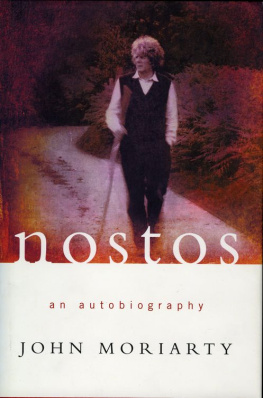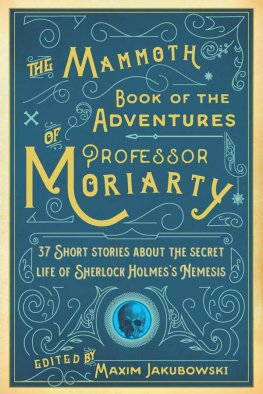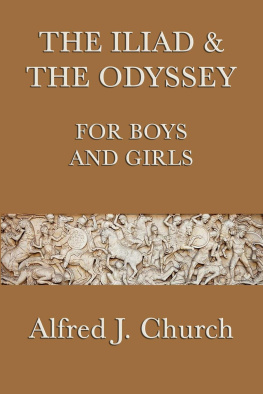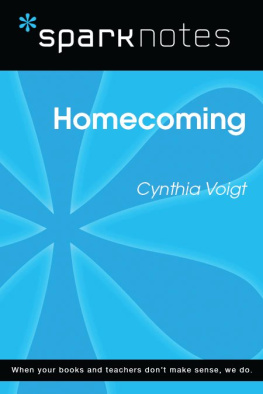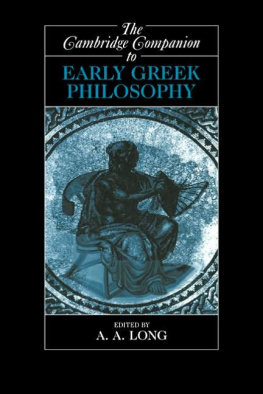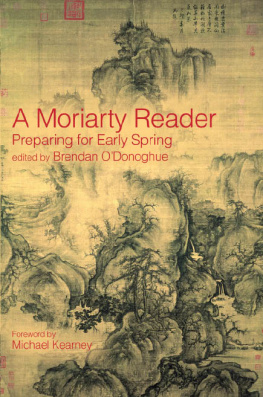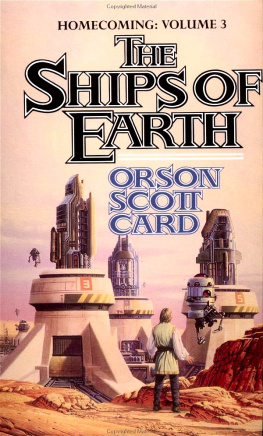John Moriarty - Nostos: An Autobiography
Here you can read online John Moriarty - Nostos: An Autobiography full text of the book (entire story) in english for free. Download pdf and epub, get meaning, cover and reviews about this ebook. year: 2011, publisher: The Lilliput Press, genre: Art. Description of the work, (preface) as well as reviews are available. Best literature library LitArk.com created for fans of good reading and offers a wide selection of genres:
Romance novel
Science fiction
Adventure
Detective
Science
History
Home and family
Prose
Art
Politics
Computer
Non-fiction
Religion
Business
Children
Humor
Choose a favorite category and find really read worthwhile books. Enjoy immersion in the world of imagination, feel the emotions of the characters or learn something new for yourself, make an fascinating discovery.
- Book:Nostos: An Autobiography
- Author:
- Publisher:The Lilliput Press
- Genre:
- Year:2011
- Rating:3 / 5
- Favourites:Add to favourites
- Your mark:
Nostos: An Autobiography: summary, description and annotation
We offer to read an annotation, description, summary or preface (depends on what the author of the book "Nostos: An Autobiography" wrote himself). If you haven't found the necessary information about the book — write in the comments, we will try to find it.
In this astonishing volume of autobiography, John Moriartys earlier works of mystical philosophy, Dreamtime and Turtle Was Gone a Long Time, are given a biographical grounding. Inhabited by all that he reads and perceives, Moriarty recovers lost forms of sensibility and categories of understanding, reconciling them gloriously within the arc of his life. Nostos is a Greek word meaning homecoming. In its plural form, nostoi, it was the name of an extensive body of literature in ancient Greece about the Greek heroes who returned from the Trojan Wars. Most of this literature has perished, but we do have The Odyssey, describing the long homecoming of Odysseus to Ithaca. Moriartys book assumes that for various reasons humanity is now exiled from the earth, but by reimagining it and ourselves as involved in a common destiny, it enacts a homecoming, a nostos to it. Nostos is a continuous narrative describing early on how its author lost his world as surely and completely as the Aztecs lost theirs when Cortez came ashore. Thereafter, in places as far apart as neolithic North Kerry and London, Periclean Athens and Blackfoot Dancing Ground, Manitoba and Mexico, Kwakiutl coast and Connemara, the author fights his way to a kind of rest, to a requiem, at the heart of things as they terribly and resplendently are. The classical, Eastern and Amer-Indian legends that have informed Moriartys life are recreated or re-enacted in this deeply personal document, which is paradoxically rich in encounters with the physical world and tender episodes of love and loss, while giving us a disturbing insight into the terrors and rare ecstasies of the hermits lonely struggle. - Tim Robinson|
In this astonishing volume of autobiography, John Moriartys earlier works of mystical philosophy, Dreamtime and Turtle Was Gone a Long Time, are given a biographical grounding. Inhabited by all that he reads and perceives, Moriarty recovers lost forms of sensibility and categories of understanding, reconciling them gloriously within the arc of his life. Nostos is a Greek word meaning homecoming. In its plural form, nostoi, it was the name of an extensive body of literature in ancient Greece about the Greek heroes who returned from the Trojan Wars. Most of this literature has perished, but we do have The Odyssey, describing the long homecoming of Odysseus to Ithaca. Moriartys book assumes that for various reasons humanity is now exiled from the earth, but by reimagining it and ourselves as involved in a common destiny, it enacts a homecoming, a nostos to it. Nostos is a continuous narrative describing early on how its author lost his world as surely and completely as the Aztecs lost theirs when Cortez came ashore. Thereafter, in places as far apart as neolithic North Kerry and London, Periclean Athens and Blackfoot Dancing Ground, Manitoba and Mexico, Kwakiutl coast and Connemara, the author fights his way to a kind of rest, to a requiem, at the heart of things as they terribly and resplendently are. The classical, Eastern and Amer-Indian legends that have informed Moriartys life are recreated or re-enacted in this deeply personal document, which is paradoxically rich in encounters with the physical world and tender episodes of love and loss, while giving us a disturbing insight into the terrors and rare ecstasies of the hermits lonely struggle. - Tim Robinson
John Moriarty: author's other books
Who wrote Nostos: An Autobiography? Find out the surname, the name of the author of the book and a list of all author's works by series.

